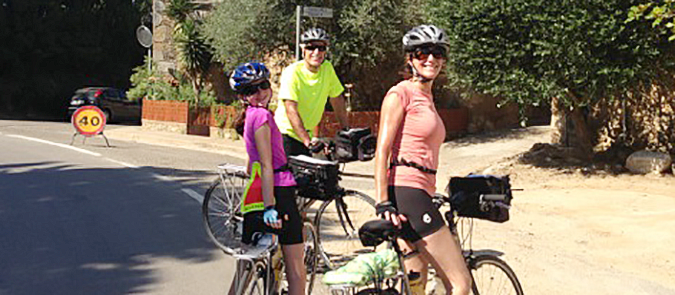While some donors work with The San Diego Foundation because they want to remain anonymous, most are highly visible with their grantmaking. Nonprofits notice their generosity, and then identify them as prospects.
You may also experience this phenomenon, such as when a spokesperson from Greenpeace knocks on your door, you receive a fundraising call from your alma mater, or a well-meaning friend or neighbor asks you to support their favorite organization.
While fundraisers (and neighbors!) often present a compelling case for support, it’s helpful to have strategies in mind for when their cause is not in line with your giving priorities. Declining graciously is much easier when you have a strategic rationale for your personal philanthropy. Below are two questions to ask yourself when developing (and/or refining) your giving priorities.
1. What are some important values from childhood or life experiences that define my priorities for giving back?
Family values like generosity are instilled from a young age and often result from participating in family activities together. For example, passion for civic engagement may arise from volunteering when you were a child. Dedication to nature preservation may develop from family camping trips.
Certain family traditions or involvement with special events also help build an appreciation for community, such as family participation in Fourth of July parades and picnics. Make a list of your values that resonate with important memories or life events in order to refine your charitable giving priorities and match them up with causes to support.
2. What issue area(s) is most important to me?
Translating family values and personal beliefs into concrete issue areas is an important step toward more meaningful philanthropy. When a general theme(s) is identified for purposeful grantmaking, many donors find it natural to support one or more organizations that advance complementary programs. This reinforces and leverages charitable giving for the most impact.
Learning more about certain organizations or issue areas is also an important aspect of strategic philanthropy. Over time, you might find that focusing your giving to fewer organizations will have the most impact, according to Chris McLeod in her article “Reinvigorate Your Giving with These Three Strategies”.
It may also be helpful to consider how your philanthropy fits into the overall nonprofit sector. An interesting outlook on San Diego County philanthropy can be found in the State of Nonprofits and Philanthropy, published annually by the University of San Diego.
Joyful Giving
Grants can be deployed most effectively when your personal values, community priorities and charitable giving resources align. When you have clear philanthropic goals, saying no becomes much easier to causes outside of your focus area. You can graciously decline an opportunity to support a particular nonprofit, while still valuing its important work. Development professionals should appreciate your thoughtful and intentional approach to giving back. They may even send you future proposals that better align with your charitable giving focus!
Please contact The San Diego Foundation to learn more about how we can help you refine your giving priorities for more focused philanthropy and increased community impact.




